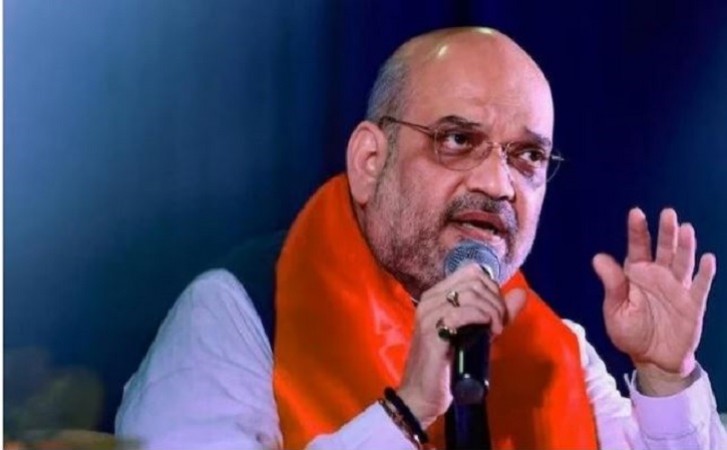
GURUGRAM: In a powerful message to the global community, Union Home Minister Amit Shah emphasized the urgent need for G20 countries to address the evolving security challenges presented by the "metaverse" and "cryptocurrency," which have replaced traditional threats like dynamite and hawala. Speaking at the 'G20 Conference on Crime and Security in the Age of NFTs, AI & Metaverse,' Shah highlighted the risks posed by cyber criminals utilizing darknet, metaverse, deepfakes, ransomware, toolkit-based misinformation campaigns, and strategic attacks on critical information and financial systems.
Shah did not mention specific entities, but he pointed out that certain anti-social elements and global forces are exploiting technology to inflict economic and social harm on both citizens and governments. He stressed the importance of expanding the G20's focus beyond digital transformation and data flow from an economic standpoint, urging the understanding of crime and security aspects to find effective solutions.
The Home Minister emphasized that such activities pose a significant national concern as they directly impact areas such as national security, law and order, and the economy. To effectively counter these crimes and criminals, it is essential to transcend traditional geographic boundaries and adopt a comprehensive and proactive approach.
"While technology has brought human beings, communities, and countries closer, we must acknowledge that some anti-social elements and global forces exploit technology for detrimental purposes," Shah added. He proposed a range of measures to combat cross-border cyber criminals, including the establishment of uniform laws across all countries, the development of response mechanisms aligned with different legal frameworks, standardization of benchmarks, best practices, and regulations, as well as enhanced coordination among cyber agencies worldwide.
"To achieve interoperability, foster trust in information sharing, and bridge protocol and resource gaps, we must adopt an integrated and stable approach to cyber security policies. The urgent need of the hour is to facilitate 'real-time cyber threat intelligence' exchange among member countries, with active support from industry and academia, to safeguard our nation's critical infrastructure," Shah asserted.
He further emphasized the imperative of cooperation in investigating cross-border cyber crimes and the joint efforts required to build a "peaceful, secure, deterrent, and open" information and communication technology environment in today's world. Shah highlighted the vulnerability of major economies to cyber attacks, citing World Bank estimates that suggest potential losses of approximately USD 5.2 trillion between 2019 and 2023. The use of cryptocurrency by malicious threat actors adds further complexity to detection and prevention efforts.
Aligning with the United Nations Convention on the Criminal Use of Information and Communication Technology, Shah underscored the need for expeditious preservation, investigation, and coordination of evidence in combating cyber crime. He cited India's own achievements in this domain, such as the development of the Aadhaar Model for digital identity, the UPI mode for real-time fast payment, the Open Network for Digital Commerce (ONDC), and the Open Health Service Network. According to him, the world requires a new model for digital public infrastructure that facilitates the seamless flow of information and finance, empowering citizens across nations.
Shah commended the Indian government, led by Narendra Modi, for formulating a unified cyber strategy, implementing real-time reporting mechanisms for cyber crimes, enhancing the capacity of law enforcement agencies, deploying analytical tools, establishing a national network of forensic laboratories, promoting cyber hygiene, and spreading cyber awareness among citizens. He highlighted the successful implementation of the Crime and Criminal Tracking Network and System (CCTNS) in all police stations throughout the country, as well as the establishment of the Indian Cyber-Crime Coordination Center (I4C) to ensure a comprehensive response against cybercrime.
Amit Shah to Unveil Major Summit to PACS on July 14
Cybercrimes pose a serious risk to people's security: Amit Shah